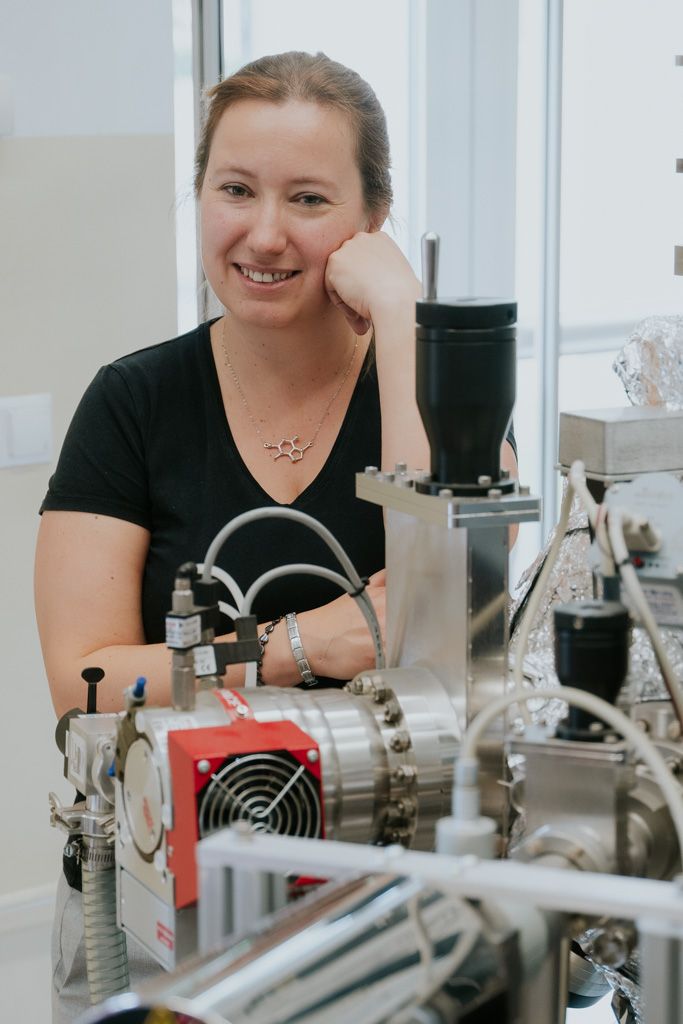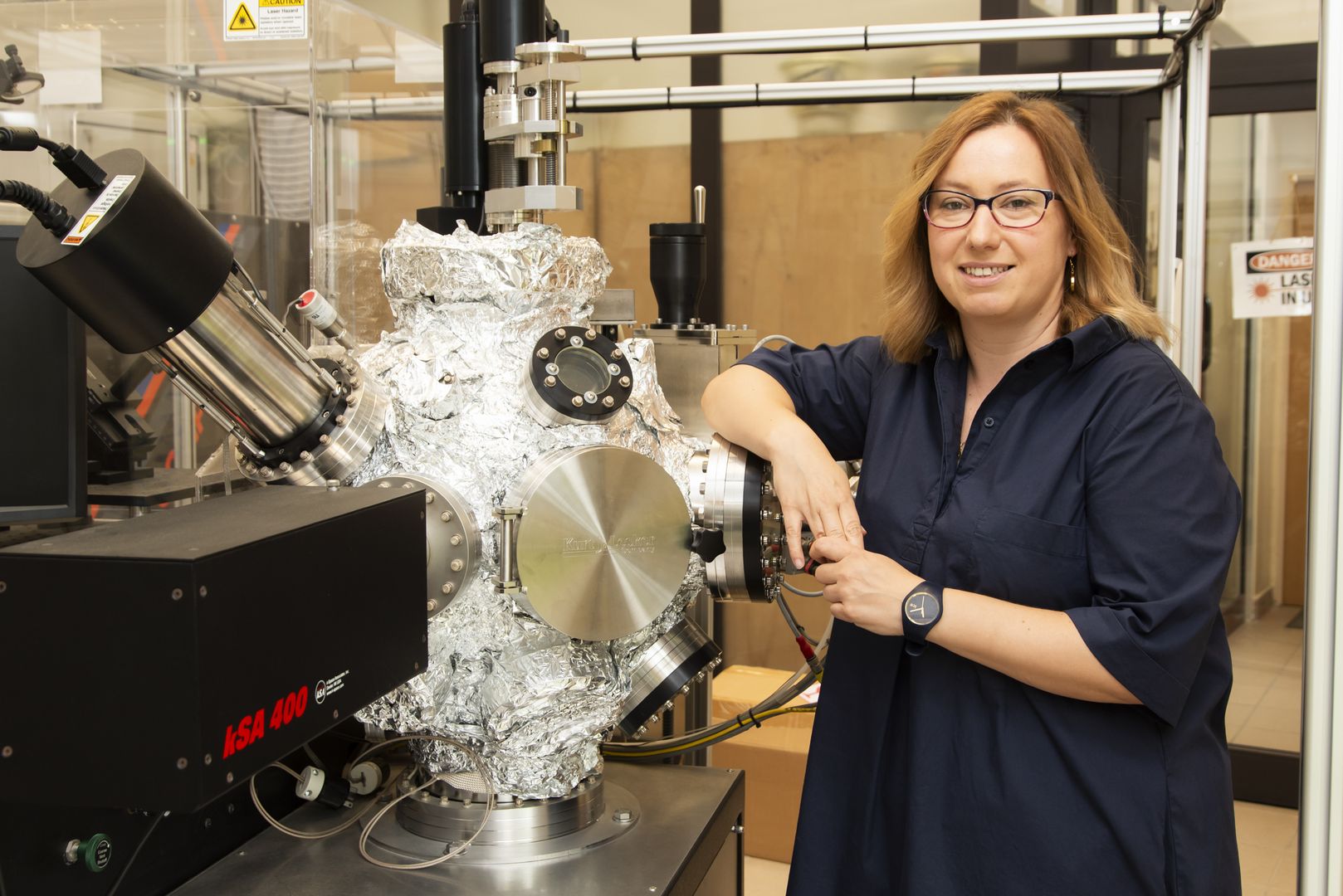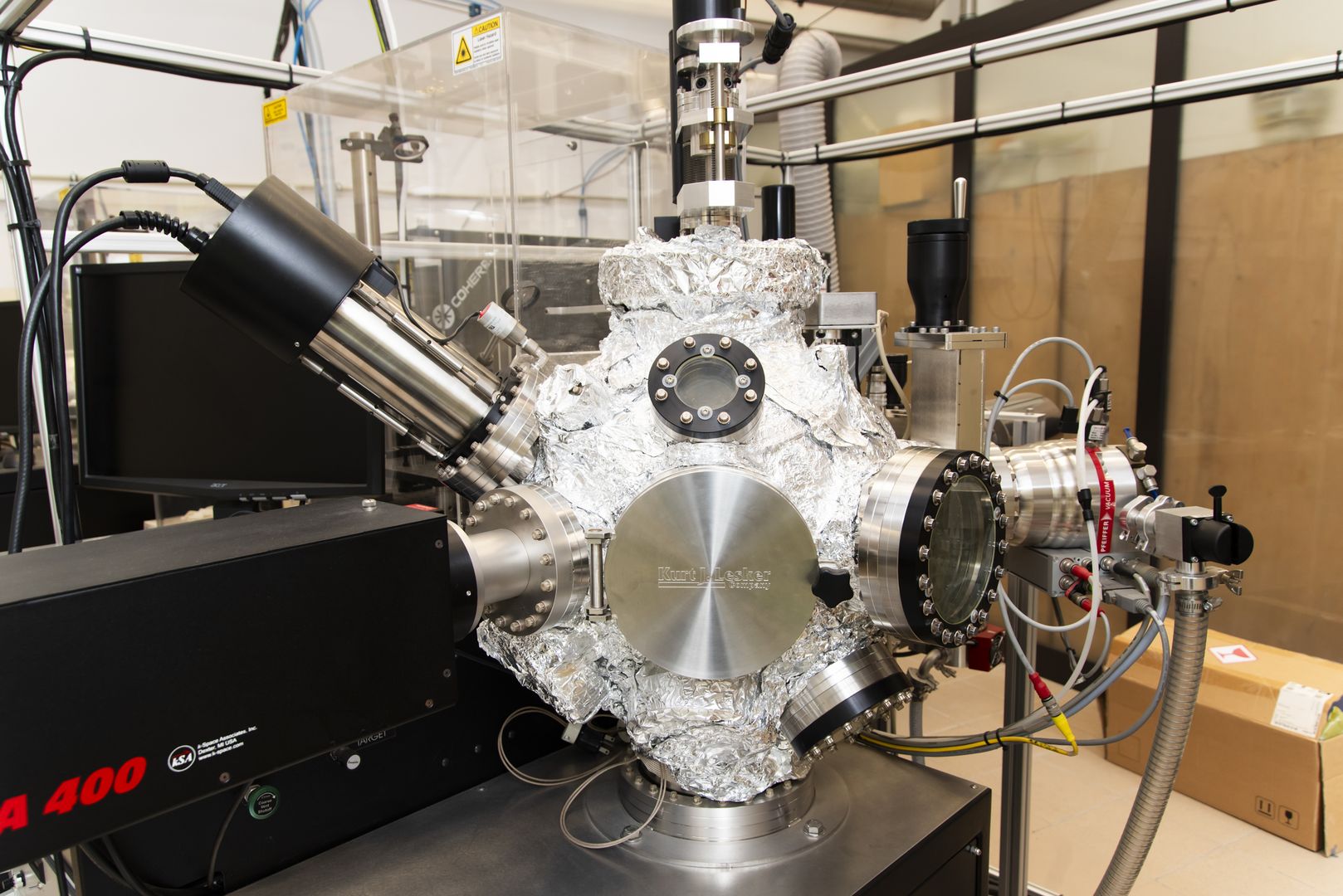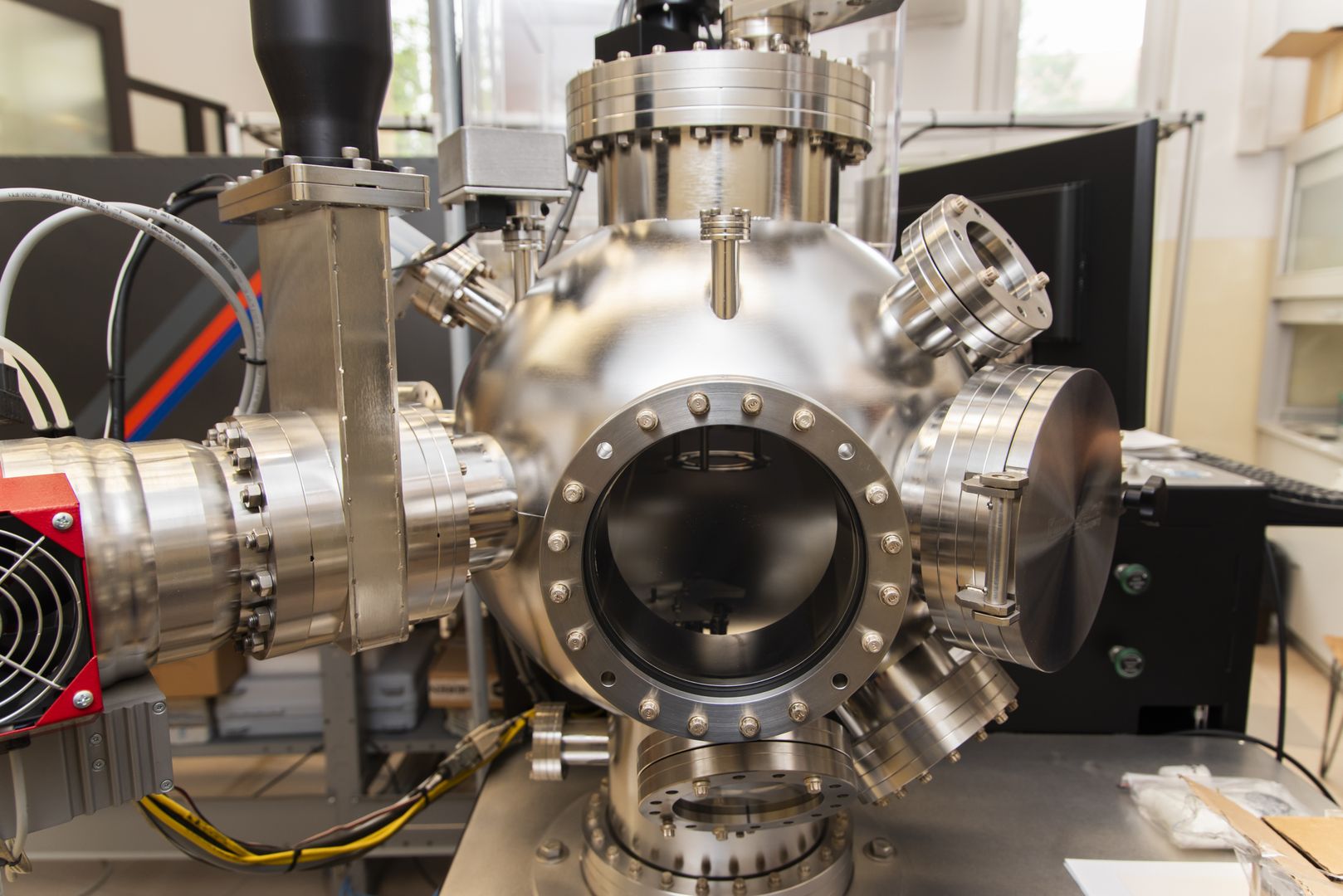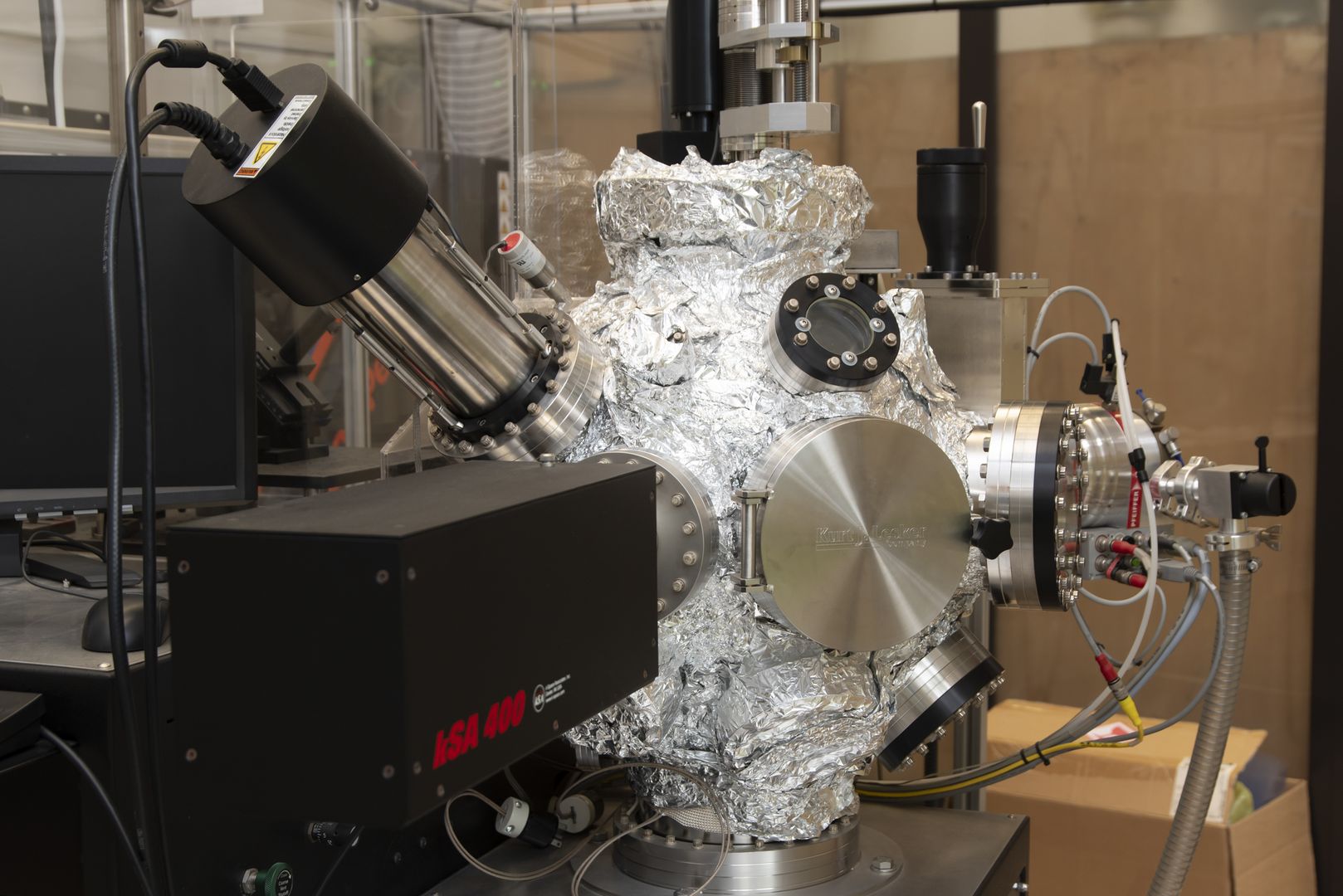Polymer coatings are components of devices we use every day: screens, displays or optical sensors, but also the more advanced - medical and diagnostic equipment. Currently, ultra-thin polymer coatings are produced using complex chemical processes that are costly, time-consuming, and environmentally unfriendly.
For her research, our scientist will use a device called an 'electron gun', of which there are only about a dozen in Europe, and which is mainly used to produce ceramic coatings. Dr Niemczyk will be the first to use it to work with polysaccharides.
The new coating technique using PED (pulsed electron beam deposition) is still not fully understood. Dr Niemczyk's experiments should lead to a precise understanding and description of the phenomena that accompany the interaction of the electron beam with the coating materials, and ultimately to the development of a way to produce coatings with different properties (e.g. protective or antibacterial). The researchers want to know the scientific 'recipe' for producing coatings that are often used in medicine.
Research to understand and describe the mechanism of polymer coatings is being carried out as part of the SONATA 19 NCN competition. The project entitled ' Knowledge building on the polymer deposition mechanisms by pulsed electron beam method on the example of polysaccharides', led by Dr Agata Niemczyk, was co-funded with PLN 1 085 100.00.
Photo: Mariusz Krawczyk and Kamila Kozioł
